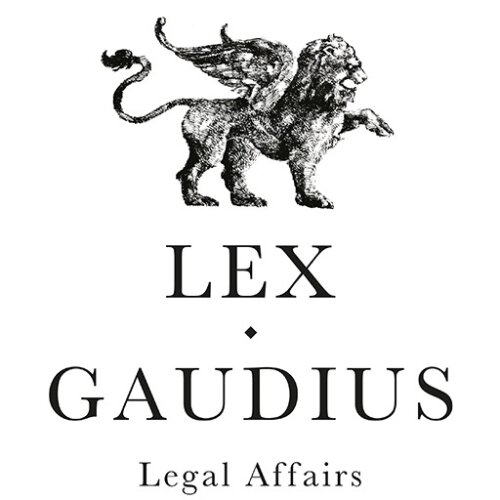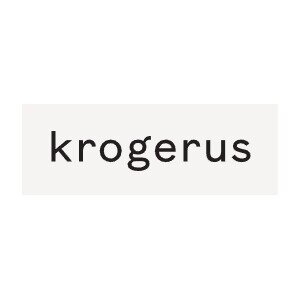Best Sustainable Finance Lawyers in Helsinki
Share your needs with us, get contacted by law firms.
Free. Takes 2 min.
List of the best lawyers in Helsinki, Finland
About Sustainable Finance Law in Helsinki, Finland
Sustainable Finance refers to financial services, investments, and practices that consider environmental, social, and governance (ESG) criteria in decision-making. In Helsinki, Finland, the sustainable finance sector is closely tied to both Finnish and European Union regulations, reflecting the city’s commitment to sustainability, the green economy, and responsible corporate behavior. As Helsinki positions itself as a green finance hub in the Nordic region, understanding the legal framework around sustainable finance is critical for businesses, investors, and anyone looking to make or attract investments with sustainability at the core.
Why You May Need a Lawyer
Sustainable finance law can be complex, involving compliance with evolving EU and Finnish regulations, navigating ESG reporting requirements, and structuring green bonds or other sustainable financial instruments. You may need a lawyer if you:
- Are looking to launch a green bond, sustainability-linked loan, or similar financial product
- Need advice on EU taxonomy and how it impacts your company’s disclosures and eligibility for sustainable finance
- Face allegations of greenwashing or need to ensure truthful sustainability claims in marketing or public reports
- Want guidance on integrating ESG factors in investment or lending decisions
- Are a financial institution seeking to align policies with the SFDR or Corporate Sustainability Reporting Directive (CSRD)
- Need representation in regulatory compliance or administrative proceedings
Understanding when to enlist legal expertise can save you from regulatory penalties, reputational harm, or missed opportunities within Helsinki’s thriving sustainable finance ecosystem.
Local Laws Overview
The framework governing sustainable finance in Helsinki is shaped by Finnish national law and European Union directives, which Finnish authorities implement and enforce. Key legal considerations include:
- EU Taxonomy Regulation: This regulation sets criteria to determine which economic activities are environmentally sustainable. Working within Helsinki, companies and investors must demonstrate that their activities contribute substantially to at least one of six environmental objectives, do no significant harm, and meet minimum safeguards.
- Sustainable Finance Disclosure Regulation (SFDR): This applies to asset managers, pension funds, and other financial market participants, requiring them to disclose integration of sustainability risks and the impact of their investments on ESG factors.
- Corporate Sustainability Reporting Directive (CSRD): This EU directive, entering force progressively from 2024, mandates comprehensive sustainability reporting for large and listed companies, with repercussions for companies across Helsinki’s financial sector.
- Finnish Financial Supervisory Authority (FIN-FSA or Finanssivalvonta): This is the local supervisory body overseeing financial market participants and enforcing compliance with the above regulations and standards concerning ESG and sustainable finance.
Additionally, Helsinki’s strong local sustainability policies, green investment incentives, and evolving contractual standards further impact how companies structure deals, manage risks, and disclose sustainability information.
Frequently Asked Questions
What does sustainable finance mean in Finland?
Sustainable finance in Finland refers to financial activities and investments that support environmental protection, social responsibility, and good governance. This typically means complying with EU and Finnish rules that require considering ESG factors in financial decisions.
Do all companies in Helsinki have to follow sustainable finance regulations?
Not all companies, but most financial market participants - such as investment firms, banks, and large listed companies - are required to comply with sustainable finance regulations, including detailed ESG disclosures and reporting.
What are the penalties for non-compliance with sustainable finance rules?
Penalties for non-compliance can include fines, restrictions on financial products, reputational damage, and corrective mandates from the Finnish Financial Supervisory Authority or EU bodies.
What is the EU Taxonomy and how does it affect Helsinki businesses?
The EU Taxonomy is a classification system that defines which economic activities are environmentally sustainable. Businesses in Helsinki need to assess and disclose how their operations or investments align with the taxonomy to attract sustainable finance or meet reporting standards.
Are there special incentives for sustainable finance in Helsinki?
Yes, local and national authorities offer various incentives such as grants, loans, or favorable terms for green projects and sustainable business models, particularly in sectors like renewable energy and clean technology.
How can I ensure my company’s sustainability claims are legally compliant?
Work with a legal expert to ensure all environmental and sustainability statements are truthful, evidence-based, and in line with regulations. This helps prevent accusations of greenwashing and potential legal action.
Do investors have obligations under Finnish sustainable finance laws?
Yes. Investors, particularly institutional investors and asset managers, must consider and report on ESG risks and their investment decisions’ impact according to SFDR and local requirements.
What sustainable finance instruments are commonly used in Helsinki?
The most common are green bonds, sustainability-linked loans, ESG investment funds, and social impact bonds, all of which need to meet specific regulatory and disclosure standards.
Is legal advice necessary when issuing a green bond in Helsinki?
Yes. Experienced legal guidance is essential to ensure proper structuring, regulatory compliance, accurate disclosures, and verification that proceeds are used for eligible projects.
How does the Finnish Financial Supervisory Authority regulate sustainable finance?
The FIN-FSA ensures financial institutions and market actors follow sustainable finance laws, including checking that ESG information is adequately disclosed, overseeing the market conduct of green finance instruments, and enforcing penalties where necessary.
Additional Resources
For more detailed guidance and updates on sustainable finance law in Helsinki, you may find the following resources helpful:
- Finnish Financial Supervisory Authority (FIN-FSA) - Offers official guidance on financial market regulations including ESG, SFDR, and the EU Taxonomy
- Ministry of Finance, Finland - Provides policy information and regulatory updates for sustainable finance at the national level
- Finnish Environment Institute (SYKE) - Delivers expert analysis on environmental sustainability relevant to finance
- European Commission Sustainable Finance Platform - Source of EU-level standards, legislative initiatives, and taxonomy updates
- Local law firms and specialist advisors experienced in sustainable finance law and ESG compliance
Next Steps
If you need legal assistance with sustainable finance in Helsinki, start by assessing your organization’s needs and identifying potential points of regulatory exposure. Gather relevant documents such as investment prospectuses, sustainability reports, and internal policies. Reach out to a local law firm or specialist lawyer with expertise in sustainable finance and ESG compliance. A legal professional can help you:
- Interpret applicable EU and Finnish regulations for your specific business model or project
- Draft or review sustainability disclosures and documentation
- Structure financial products or deals in compliance with all legal requirements
- Respond to regulatory inquiries or defend against alleged non-compliance
- Stay ahead of regulatory changes in Helsinki’s fast-paced sustainable finance sector
Taking these steps ensures your business or project is well-positioned in Helsinki’s sustainability-focused financial landscape, minimizing legal risks and maximizing opportunities for green growth.
Lawzana helps you find the best lawyers and law firms in Helsinki through a curated and pre-screened list of qualified legal professionals. Our platform offers rankings and detailed profiles of attorneys and law firms, allowing you to compare based on practice areas, including Sustainable Finance, experience, and client feedback.
Each profile includes a description of the firm's areas of practice, client reviews, team members and partners, year of establishment, spoken languages, office locations, contact information, social media presence, and any published articles or resources. Most firms on our platform speak English and are experienced in both local and international legal matters.
Get a quote from top-rated law firms in Helsinki, Finland — quickly, securely, and without unnecessary hassle.
Disclaimer:
The information provided on this page is for general informational purposes only and does not constitute legal advice. While we strive to ensure the accuracy and relevance of the content, legal information may change over time, and interpretations of the law can vary. You should always consult with a qualified legal professional for advice specific to your situation.
We disclaim all liability for actions taken or not taken based on the content of this page. If you believe any information is incorrect or outdated, please contact us, and we will review and update it where appropriate.
















